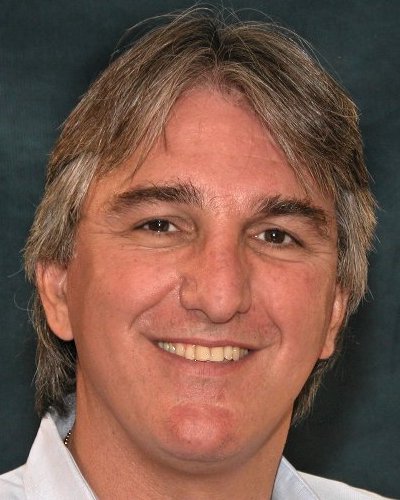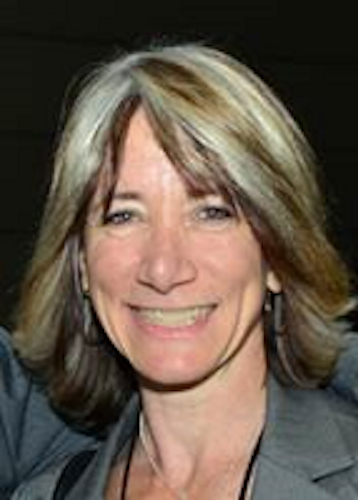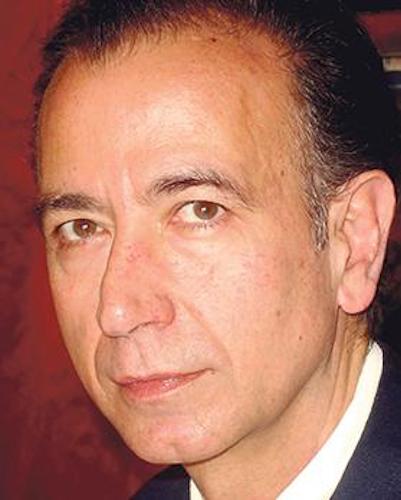Keynote Speakers
We are honored to welcome as our keynote speakers (in alphabetical order):
 |
 |
 |
| Prof. Kostas Goulias | Prof. Elise Miller-Hooks | Prof. Markos Papageorgiou |
| UC Santa Barbara | George Mason University | TU Crete |
Prof. Kostas Goulias - Environmental correlates of activity and travel behavior
Abstract: The system of behavioral models in an activity-based model (ABM) is used in this presentation to illustrate different needs to correlate the built environment with travel. This includes residential-job-school location choices, ownership of mobility tools, human interaction within a day, and daily activity scheduling and travel choices. This is followed by a small selection of examples about time and place representation, heterogeneity of behavior, and issues of endogenous self-selection in this type of model systems. A discussion on a few problems and research gaps in objective and subjective measurement, spatial representation and scale, spatial correlation, and behavior-cognition follow. The presentation ends with a short list of research directions to close these gaps in the context of more traditional transportation policies and the era of disruptive services and automated technologies.
Bio: Konstadinos (Kostas) Goulias is a professor of transportation in the Geography Department at the University of California Santa Barbara and director of the GeoTrans laboratory. He teaches and conducts research in spatial statistics, smart cities, and transportation systems planning and modeling. From 1991 to 2004, he was a professor of transportation in the Department of Civil Engineering at PennState where he was also director of different research units. He served as chair of the Traveler Behavior and Values Committee (now serving as emeritus member) and chair of the Task Force on Moving Activity-based Approaches to Practice both of the Transportation Research Board of the National Academies in the United States. He edited three books, authored and co-authored more than 300 papers and reports to sponsor, and serves on a variety of editorial and research boards, peer review panels, and committees. He is also co-founding editor of the journal Transportation Letters published by Taylor&Francis. Kostas has a Laurea in Engineering degree (5 years and a thesis) from University of Calabria in Italy (1986), MS in Engineering from University of Michigan, Ann Arbor (1987), and Ph.D. in Engineering from University of California at Davis (1991).
Prof. Elise Miller-Hooks - Thinking about Resilience of our Transportation Systems in an Intelligent and Connected World
Secure and functioning transportation systems are of paramount importance to society. To ensure that effective services can be provided in a disaster’s aftermath enabling society to recover, governmental agencies and private entities charged with designing, constructing, managing and operating these systems must invest in measures that prevent or mitigate the effects of disaster incidents and less major disruptions. Transportation networks are interconnected with other critical lifelines, such as power and water supply. Together, these lifelines support societal activities occuring within building facilities related by a common function, e.g. health care. Oftentimes, the abilities of system users, e.g. transit riders, play an important role in the services they experience. Thus, both the behavior of technical components and how the system enables its varying users to adapt are crucial. As our infrastructure systems become increasingly connected and intelligent, and new mobility options emerge, new hazards will arise as concerns and new notions of resilience will be needed. This talk will describe developed mathematical approaches for quantifying and maximizing the resilience level of these surface transportation systems and the societal functions they support both in the context of our current environment and in a developing intelligent and connected world.
Bio: Dr. Elise Miller-Hooks holds the Bill and Eleanor Hazel Endowed Chair in Infrastructure Engineering at George Mason University. Prior to this, Dr. Miller-Hooks served as Program Director of the U.S. National Science Foundation (NSF) Civil Infrastructure Systems Program, lead Program Officer for the Critical Resilient Interdependent Infrastructure Systems and Processes (CRISP) solicitation, and a cognizant program officer on an initial smart cities initiative. She served on the faculties of the University of Maryland, Penn State and Duke University. Dr. Miller-Hooks received her Ph.D. (1997) and M.S. (1994) degrees in Civil Engineering from the University of Texas – Austin and B.S. from Lafayette College (1992). She has expertise in: disaster planning and response; multi-hazard civil infrastructure resilience quantification; stochastic and dynamic network algorithms; mathematical modeling and optimization; and transportation systems engineering, including intermodal passenger and freight transport, real-time routing and fleet management, paratransit, ridesharing and bikeways. Her research program has been funded by numerous agencies and companies. She has authored over 150 articles and reports and 230 conference presentations and invited or keynote lectures. She serves on the editorial boards of Transportation Science (Associate Editor), Operations Research (Associate Editor - Policy Modeling and Public Sector OR Section), Journal of Intelligent Transportation Systems and Transportation Research Part B, and is Chair of the TRB Transportation Network Modeling Committee, founding Co-Chair of the TRB Task Force on Emergency Evacuation, and past president of the INFORMS Transportation Science and Logistics Society.
Prof. Markos Papageorgiou - Motorway Traffic State Estimation with Connected Vehicle Data
Real-time information is a prerequisite for motorway traffic surveillance and control. In conventional traffic flow, measurements are collected by use of a variety of possible monitoring devices, including electromagnetic loops, radar, magnetometers, cameras and other technologies. Such measurements are usually local and may also be sparse, which calls for appropriate estimation techniques that deliver a more complete special image of the motorway traffic state. On the other hand, the continuously increasing availability of data from connected vehicles offer a possibility for enhanced traffic estimation based on a reduced number of conventional detectors. We present a Kalman filtering approach for motorway traffic state estimation, which exploits available connected vehicle data, even at very low penetration rates, and minimises the need for conventional detectors. The estimation scheme is distinguished by the fact that it uses only accurate traffic equations, without any need for model validation, which facilitates easy practical applications. Observability properties of the scheme are rigorously investigated via the powerful structural observability method. It is demonstrated that the approach delivers reliable estimation results on the basis of microscopic NG-SIM data, macroscopic real motorway data and microscopic simulation investigations. The scheme is extended to cover also lane-based traffic estimation, which is crucial for a number of emerging control applications with connected vehicles. This extended approach is also tested and demonstrated successfully via NG-SIM data, as well as validated microscopic simulation of a real motorway stretch.
Bio: Markos Papageorgiou received the Diplom-Ingenieur and Doktor-Ingenieur degrees in Electrical Engineering from the Technical University of Munich, Germany, in 1976 and 1981, respectively. He was a Free Associate with Dorsch Consult, Munich (1982-1988), and with Institute National de Recherche sur les Transports et leur Sécurité (INRETS), Arcueil, France (1986-1988). From 1988 to 1994 he was a Professor of Automation at the Technical University of Munich. Since 1994 he has been a Professor at the Technical University of Crete, Chania, Greece. He was a Visiting Professor at Politecnico di Milano, Ecole Nationale des Ponts et Chaussées, MIT and University of Rome La Sapienza; and a Visiting Scholar at the University of California at Berkeley. His research interests include automatic control and optimisation theory and applications to traffic and transportation systems, water systems and further areas. He is a Fellow of IEEE and a Fellow of IFAC. He received several distinctions and awards, including an ERC Advanced Investigator Grant.